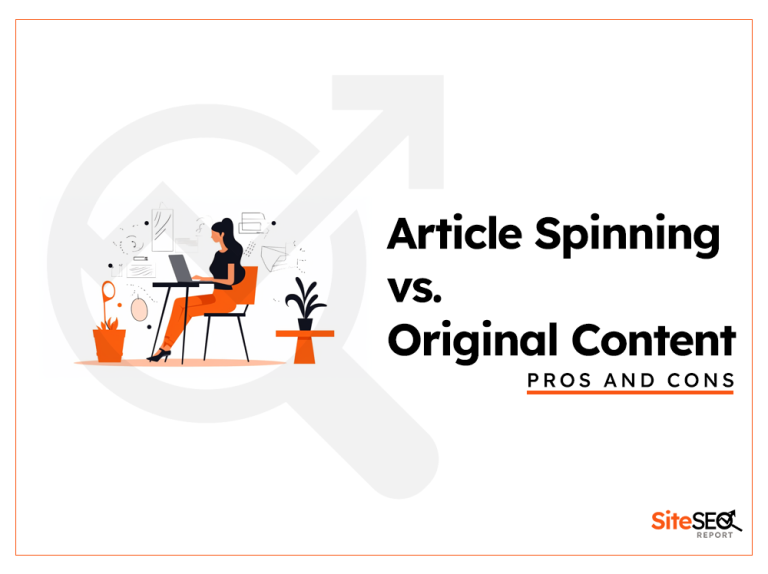Dive into the world of title tags, understanding their significance in SEO, and learn how to craft them effectively. What is the concept of title tag?
Let’s explore!
Title tags have been the cornerstone of SEO since the dawn of search engines. They serve as the first impression for users and search engines alike, dictating how a webpage is perceived and categorized.
Evolution of Title Tags
From the early days of the internet, title tags have evolved, adapting to the ever-changing algorithms of search engines. They’ve grown from simple descriptors to powerful SEO tools.
Importance in Modern SEO
In today’s digital age, title tags play a pivotal role in determining a website’s visibility. They’re not just titles; they’re gateways to content, beckoning users to click.
Deep Dive: The Anatomy of a Title Tag
Understanding the structure and limitations of a title tag is crucial for effective SEO.
Length and Limitations
While there’s no strict word limit, it’s generally advised to keep title tags between 50-60 characters or 560px of width in Search Engine. Any longer, and they risk being truncated in search results.
Core Components
A title tag should encapsulate the essence of the content, incorporate relevant keywords, and resonate with the target audience.
Why Title Tags Matter?
Ever judged a book by its cover? That’s how users view title tags. Their importance can’t be overstated.
First Impressions Count
A well-crafted title tag can be the difference between a click and a pass. It’s the first thing users see, setting the tone for their experience.
Boosting Click-Through Rates
Title tags directly influence CTR. A compelling title can significantly increase traffic, while a lackluster one can deter potential visitors.
Impact on SEO Rankings
Search engines, especially Google, place immense value on title tags. They’re a primary factor in determining page relevance and ranking.
Crafting the Perfect Title Tag
Creating an effective title tag is both an art and a science. It requires creativity, knowledge of SEO, and an understanding of the audience.
Incorporating Keywords
Including relevant keywords in the title tag ensures that search engines recognize the content’s relevance to user queries.
Balancing Brevity and Detail
While it’s essential to be concise, providing enough detail to entice users is equally crucial.
Using Power Words for Impact
Power Words like “Ultimate,” “Essential,” or “Definitive” can make a title stand out, encouraging more clicks.
Common Mistakes in Title Tag Creation
Even seasoned SEO experts can slip up. Being aware of common pitfalls can save you from costly mistakes.
Overstuffing with Keywords
Keyword stuffing can lead to penalties. It’s essential to strike a balance, ensuring relevance without appearing spammy.
Ignoring Branding
Including brand names or identifiers can boost credibility and recognition.
Being Too Vague
A title tag should give users a clear idea of the content. Ambiguity can lead to missed opportunities.
Advanced Tips for Title Tag Optimization
To truly master title tag creation, one must go beyond the basics.
Using Numbers Effectively
Numbers, like “11 Essential Insights,” can make a title more attractive, offering quantifiable value to readers.
Emotional Triggers in Title Tags
Tapping into emotions, whether it’s curiosity or urgency, can significantly boost engagement.
LSI Keywords and Their Role
Latent Semantic Indexing (LSI) keywords can enhance a title tag’s effectiveness, offering context and improving SEO.
The Relationship Between Title Tags and Meta Descriptions
While both serve to entice users, they should be crafted to complement each other, offering a cohesive message.
Complementary, Not Redundant
Your meta description should expand on the title tag, not merely repeat it.
Crafting a Cohesive Message
Together, the title tag and meta description should provide a clear, enticing snapshot of the content.
What is the concept of title tag?
At its core, a title tag is an HTML element that specifies the title of a web page. It’s displayed on search engine results pages (SERPs) as the clickable headline for a given result and is crucial for usability, SEO, and social sharing.
FREQUENTLY ASKED QUESTIONS
How long should a title tag be?
Typically, it’s best to keep title tags between 50-60 characters to ensure they display correctly in search results.
Why are title tags important for SEO?
Title tags inform search engines about the content and relevance of a page, directly influencing rankings.
Can I include my brand in the title tag?
Absolutely! Branding can boost credibility and recognition, especially if your brand is well-known.
How do LSI keywords benefit title tags?
LSI keywords provide context, helping search engines understand the content better and potentially improving rankings.
What’s the difference between a title tag and a meta description?
While both are essential for SEO, title tags are the clickable headlines in SERPs, while meta descriptions offer a brief summary of the content.
Do title tags affect click-through rates?
Yes, a compelling title tag can significantly boost CTR, driving more traffic to your site.
Conclusion: The Future of Title Tags
As search engines evolve, so will the role of title tags. However, their essence will remain the same: to provide a clear, concise, and compelling snapshot of a page’s content. By understanding and mastering the concept of title tags, you’re well on your way to SEO success.






